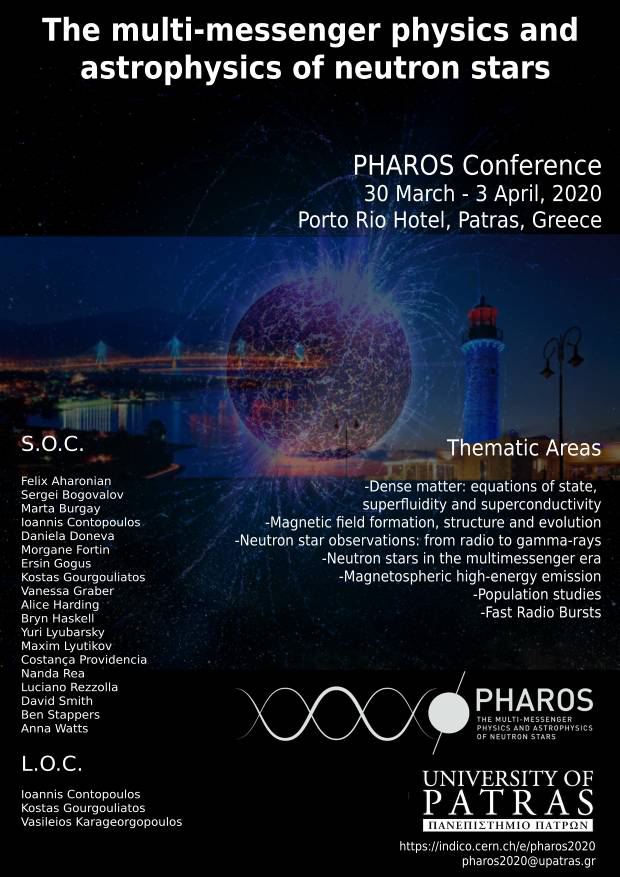Speaker
Description
We study bulk viscosity arising from weak interaction processes in dense baryonic matter for temperature-density range relevant to neutron star mergers. We consider two compositions of baryonic matter: a) pure nucleonic matter, where the main source of bulk viscosity are weak current direct Urca processes – neutron decay and electron capture; b) hypernuclear matter, where the bulk viscosity arises from non-leptonic weak interaction processes involving $\Lambda$ and $\Sigma$ hyperons. We model the nuclear matter in relativistic density functional approach, taking into account the trapped neutrino component. We find that the resonant maximum of bulk viscosity would occur below the neutrino trapping temperature, therefore in the neutrino trapped regime the bulk viscosity decreases with temperature as $T^{−2}$ , this decrease being interrupted by a drop to zero at a special temperature (for fixed density) where the neutron fraction becomes density-independent and the material scale-invariant. The bulk viscosity of nuclear matter drops sharply while moving from the neutrino-transparent regime to the neutrino-trapped regime. We conclude that the bulk viscosity will have its greatest impact on neutron star mergers in regions that are neutrino transparent rather than neutrino trapped. We further investigate the oscillation damping timescales of a post-merger object and identify regimes where these timescales are comparable to the merging timescales $\sim $10 ms.

